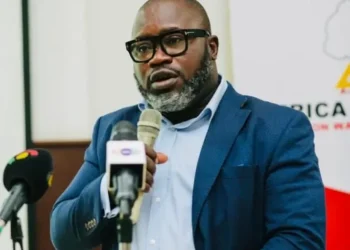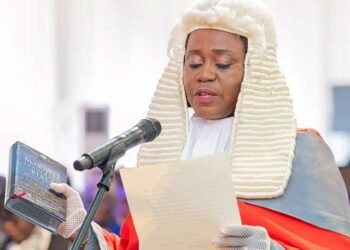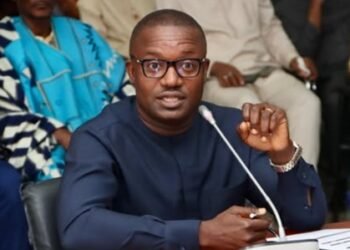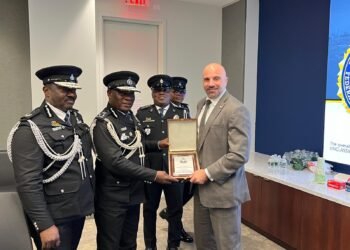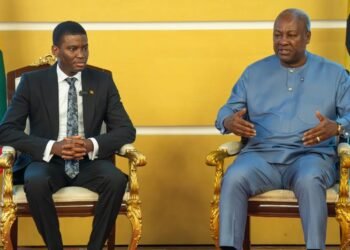The birth of the United Party (UP) has reignited debate over the possibility of breaking Ghana’s long-standing two-party dominance.
The new political party arrives at a time when many citizens are calling for a credible, reform-driven alternative to the New Patriotic Party (NPP) and the National Democratic Congress (NDC).
Reflecting on this development, Professor Stephen Kwaku Asare, a Fellow at the Center for Democratic Development (CDD-Ghana), welcomed the formation of the party but cautioned that its survival and credibility will depend less on rhetoric or historical nostalgia and more on the institutionalization of integrity and good governance principles.
“There is, without question, a growing desire for reformist, principled politics that transcends the stale NPP–NDC duopoly. The new UP can fill that vacuum. But credibility will depend less on rhetoric and lineage and more on giving people hope.”
Professor Stephen Kwaku Asare
He noted that while the name United Party evokes the memory of Ghana’s pre-independence political movements and the Busia–Dombo–Danquah tradition, the newly formed UP must avoid portraying itself as a mere reincarnation of that past.
Instead, it should demonstrate originality, vision, and commitment to building a credible institution grounded in ethics and accountability.
“If the new UP aspires to be more than a nostalgic revival or a protest movement, it must institutionalize credibility. It must give voters food for thought, not recycled slogans. It must not present itself as a United Party reincarnated or a Busia–Dombo–Danquah lite.”
Professor Stephen Kwaku Asare
In outlining a comprehensive framework for building a credible political alternative, Professor Asare proposed ten practical guidelines that the new party must adopt if it wishes to be taken seriously.

Ethical Party Financing
He began by emphasizing the need to commit to public finance ethics, urging the UP to demonstrate zero tolerance for corruption, looting, and waste.
“Reject big-time financiers whose money compromises accountability,” he advised. According to him, the party should democratize its financing structure, minimize political extravagance, and lead advocacy for campaign finance reform to prove its integrity.
Professor Asare also called on the new party to define a distinct ideological identity that sets it apart from both the NPP and NDC. He explained that the UP must articulate a bold, coherent philosophy rooted in constitutionalism, enterprise, and fairness—values that resonate with Ghanaians seeking genuine reform and fairness in governance.
To translate ideology into real political strength, he urged the UP to build grassroots machinery rather than relying on social media visibility.
“Invest in real constituency structures, empower youth and women’s wings, and make visibility at the base, not the Airport, the measure of growth”.
Professor Stephen Kwaku Asare
Developing a Credible Candidate
Another major pillar of credibility, Professor Asare argued, lies in recruiting and developing credible candidates. He called for open and transparent selection processes that prioritize discipline, competence, and ethics.
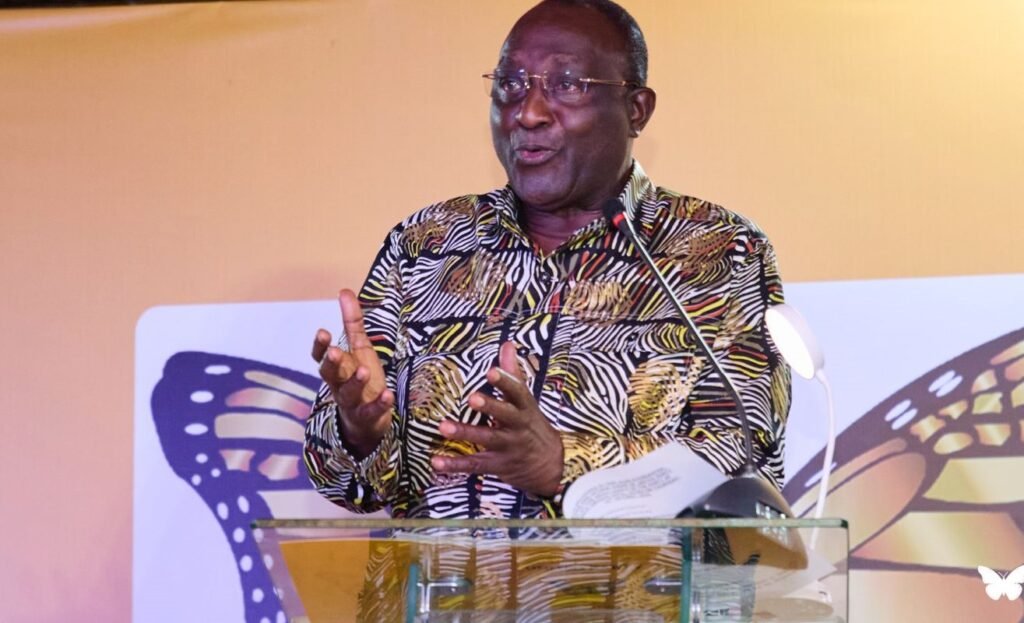
“Field candidates who are known for service, not self-enrichment,” he urged, adding that citizens will only trust a political party whose representatives reflect integrity and commitment to the public good. He further called on the United Party to present a real governance blueprint anchored in research and measurable outcomes.
“Publish an evidence-based, measurable national plan to tackle jobs, inflation, education, health, decentralization, and galamsey,” he proposed. In his view, voters are fatigued by promises and need to see tangible strategies backed by data and achievable targets.
The CDD-Ghana Fellow also urged the new UP to become the party of integrity and innovation. He suggested that the party should disclose its finances, embrace digital tools for membership management, and enforce internal democracy.
“It must practice what others only preach,” he remarked, underscoring that transparency and technological adaptation will help modernize the party’s image and operations.
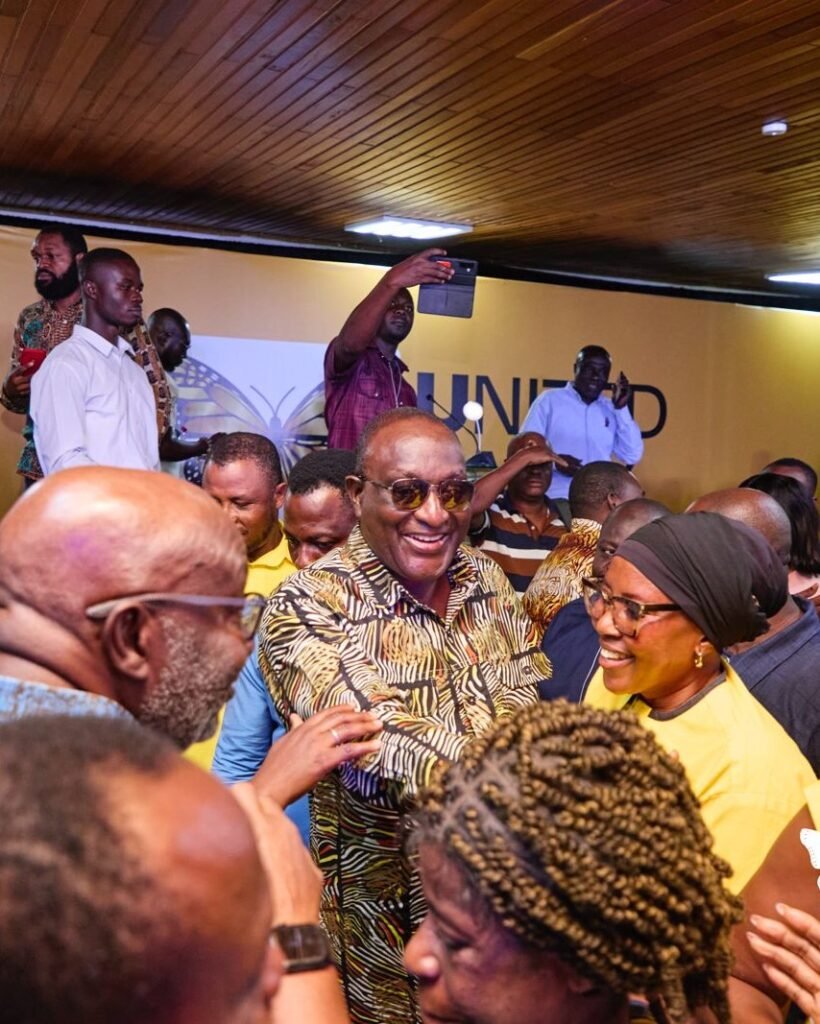
Building a Strategic Partnership
Equally important, he said, is the need for the UP to engage civil society and issue coalitions, explaining that legitimacy in modern politics stems from citizen engagement, not elite endorsements.
“Collaborate with youth movements, professional bodies, traditional leaders, and reform networks to anchor legitimacy in citizen power, not elite circles”.
Professor Stephen Kwaku Asare
On political communication, Professor Asare called on the UP to communicate values, not insults. “Elevate discourse with civility, humor, and evidence-based storytelling. Inspire rather than attack. Lead with clarity, not noise,” he advised, noting that political discussions in Ghana have become too combative and often devoid of ideas.
He further advised the party to start local, prove capacity, and then scale nationally, arguing that political credibility must be earned through consistent success at the grassroots level.
“Build credibility through district and parliamentary success stories. Set a target of registering 1,000,000 members by 2027 and use a modern electronic voting system to allow all members to choose the presidential candidate democratically that year”.
Professor Stephen Kwaku Asare

Lastly, Professor Asare underscored the need for the UP to preserve unity, discipline, and internal democracy. He warned against the dangers of factionalism and personality-driven leadership that have often destabilized political parties in Ghana.
“Guard against factionalism. Uphold transparent rules, merit-based leadership, and a culture of service—so power becomes a duty, not a trophy”.
Professor Stephen Kwaku Asare
Professor Asare concluded that if the United Party embraces these ten guiding principles, it will not only build a credible and sustainable political force but also renew public faith in Ghana’s political system.
READ ALSO: Debt Discipline Paying Off? IMF Projects Ghana’s Debt-to-GDP Ratio to Hit 59% by End of 2025





